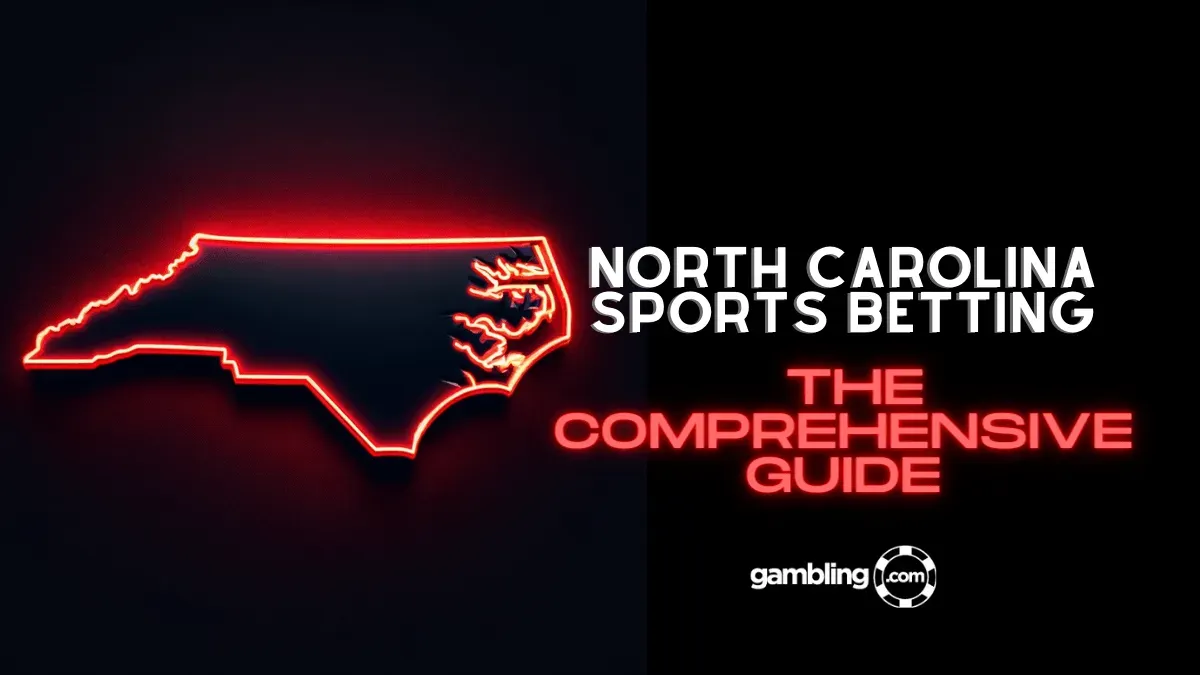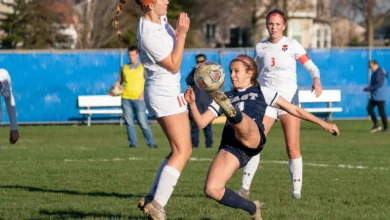North Carolina Sports Betting: UNC and NC State Game Mandate

North Carolina sports betting is rapidly evolving as the state embraces legal online wagering, particularly with the excitement of March Madness on the horizon. Recent legislative proposals aim to not only double the sports betting tax in North Carolina but also mandate that powerhouses like UNC and NC State play more in-state games. This move is expected to enhance local rivalries, invigorate fan engagement, and potentially increase tax revenue from sports betting. As operators like DraftKings and FanDuel ramp up their presence, the financial implications could benefit athletic departments significantly, funneling millions into programs and activities. With the sports betting tax North Carolina aiming to rival the highest rates in the country, the intersection of collegiate athletics and gambling could redefine how fans engage with their favorite in-state college sports teams.
The burgeoning world of sports wagering in North Carolina is drawing attention as new regulations seek to reshape the landscape of collegiate athletics. In an effort to boost local competition, state leaders have proposed that both the University of North Carolina and NC State engage more frequently in matchups with in-state colleges. This initiative not only aims to foster regional pride but also has implications for the state’s tax income, particularly from March Madness sports betting. The dynamic shift includes a substantial increase in the sports betting tax rates, which, if approved, will position North Carolina among the highest tax states in the nation. As the excitement around UNC basketball games builds, so does the potential for an economic windfall from enhanced sports betting activities.
Impact of Sports Betting Tax Increases
The North Carolina Senate’s proposal to double the sports betting tax from 18% to 36% could significantly reshape the state’s gambling landscape and its economic contributions. By aligning the tax rate with the highest in the nation, alongside New York and Pennsylvania, North Carolina aims to maximize tax revenue from sports betting operators. This increase is expected to generate an influx of funds for local collegiate athletic programs, particularly for UNC and NC State, which are poised to benefit from a proposed redistribution of these revenues.
Moreover, this tax reallocation will empower North Carolina to invest more in its in-state college sports programs. Universities are likely to see enhanced funding that can be channeled into facilities, scholarships, and competitive initiatives. The legislative action may not only bolster the athletic framework of schools like UNC and NC State but could also secure better student-athlete experiences and opportunities for growth.
March Madness and Sports Betting in North Carolina
As March Madness approaches, sports betting activity in North Carolina is set to escalate. This annual college basketball tournament draws millions of fans who are eager to place bets on their favorite teams, including local powerhouses like UNC and NC State. The excitement surrounding March Madness provides a prime opportunity for the state to capitalize on sports betting, potentially increasing participation and tax revenues.
With a robust online sports betting market expected to thrive during this peak period, operators such as DraftKings and FanDuel continue promoting their platforms to attract North Carolina bettors. The heightened activity is likely to contribute significantly to the state’s tax earnings from wagering, directly impacting how funds are utilized for in-state college sports programs. The connection between March Madness and sports betting exemplifies the competitive edge that North Carolina hopes to build as it solidifies its standing in the betting industry.
UNC and NC State’s In-State Game Mandate
Under the new budget proposal, UNC and NC State are mandated to engage in more in-state matchups, specifically against schools within the UNC System. This requirement emphasizes the importance of local competition and aims to enrich the collegiate sports environment in North Carolina. By playing teams from the same athletic system, these universities can foster rivalries, enhance fan engagement, and create local pride during games.
Additionally, the mandate will allow the institutions to utilize their presence and influence within the state to promote tourism and local businesses, especially during game days. Increased attendance at these games can lead to a significant boost in local economies, which could complement the anticipated rise in sports betting revenues. Engaging in these in-state games helps UNC and NC State strengthen their community ties while remaining competitive on the national stage.
Redistribution of Sports Betting Revenue
The recent proposal to redistribute sports betting tax revenue signifies a transformative shift for athletic programs across North Carolina’s university system. Previously, only a small subset of institutions benefited from this revenue pool, but the new budget aims to ensure that both UNC and NC State, along with other state universities, receive substantial increases in funding. As expected, this will enable a more equitable approach to distributing these funds within the state’s colleges.
This redistribution strategy pursues several goals, including fostering a competitive collegiate sports landscape, increasing scholarships for student-athletes, and enhancing game-day experiences. As revenue from sports betting continues to rise — surpassing the $135 million mark — it becomes critical for the state to utilize these funds in a manner that uplifts all involved institutions, enhancing North Carolina’s overall athletic prowess.
Legislative Support Behind College Sports Growth
The backing from Senate Republicans for increased funding to collegiate athletics through the sports betting tax demonstrates a significant commitment to advancing college sports in North Carolina. Legislators recognize the potential benefits associated with a strong athletic program, such as heightened school spirit, recruitment of talented student-athletes, and increased visibility for the state’s universities.
Moreover, by mandating that UNC and NC State engage with various in-state teams, lawmakers are taking active steps to encourage community ties and enhance the visibility of local programs. This focus on collegiate athletics not only caters to sports fans but also signifies a broader investment in education and youth development through sports.
The Role of Gambling Addiction Prevention in Sports Betting Legislation
Incorporating gambling addiction prevention into the discussion surrounding sports betting legislation is vital as North Carolina moves to expand this industry. Senate Bill 533 outlines a strategy to allocate resources for services aimed at preventing gambling addiction, ensuring that the responsible development of sports betting does not come at the cost of public health.
As sports betting gains popularity, it is crucial to address the potential pitfalls associated with it. Reinforcing support systems for vulnerable individuals can prevent harmful consequences while promoting a safe betting environment. Such responsible measures are essential to protect consumers and mitigate risks, ensuring that North Carolina’s sports betting expansion benefits all its residents.
Economic Impacts of Legal Sports Betting
The legalization of sports betting in North Carolina marks a new chapter in the state’s economic development saga. By introducing legal operators into the market, North Carolina stands to gain considerable tax revenue, which can then be reinvested into various sectors, including education and community services. This influx of funds will play a vital role in funding athletic programs, specifically within the UNC System.
Sports betting is not only about recreational gambling; it represents a substantial economic driver. The revenue generated through betting activities can improve infrastructure, promote tourism, and provide jobs related to both the athletics and gambling sectors. Furthermore, with March Madness on the horizon, North Carolina’s economy is set to experience a positive jolt, attracting visitors who seek to partake in the excitement surrounding college basketball betting.
The Future of College Basketball in North Carolina
As the landscape of college basketball evolves, North Carolina is primed to enhance its competitive edge. The combination of increased sports betting revenues and a focus on in-state matchups presents an opportunity for schools like UNC and NC State to solidify their dominant positions within college athletics. This dual approach could lead to increased recruiting capabilities and elevating the overall prestige of North Carolina’s basketball programs.
Moreover, engaging more regularly with in-state teams not only strengthens rivalries but also enriches the fan experience. As the state authorities continue to navigate the intersection of sports betting and college athletics, it’s likely that this synergy will lead to more exciting developments in the realm of North Carolina college basketball.
North Carolina’s Place in National Sports Betting Trends
North Carolina is becoming a noteworthy player in the national sports betting scene, particularly as legal online wagering commenced recently. Positioned among states implementing progressive sports betting regulations, North Carolina is following in the footsteps of larger markets while crafting its unique approach to gambling legislation. The interest in sports betting correlates with major sporting events, including March Madness, which can further elevate North Carolina’s status.
As the industry evolves, maintaining a competitive yet responsible arena for sports betting will be crucial for North Carolina’s ongoing success. By fostering a healthy gambling environment and ensuring educational investments through sports revenue, North Carolina has the opportunity to not only benefit its local institutions but also lead by example in national sports betting trends.
Frequently Asked Questions
How does North Carolina sports betting impact UNC basketball games?
North Carolina sports betting has led to a new mandate requiring UNC and NC State to play more in-state basketball games. This initiative is part of a Senate budget proposal aiming to enhance local rivalry and increase tax revenue generated from sports betting.
What is the current tax rate on sports betting in North Carolina?
The sports betting tax rate in North Carolina is currently proposed to double from 18% to 36%. This change would align the state with some of the highest tax rates in the country, impacting how much revenue is funneled into UNC athletic departments.
What percentage of sports betting tax revenue supports NC State’s programs?
Under the proposed budget, a portion of the sports betting tax revenue will be designated for athletic programs, including those at NC State. Once allocations are made, 10% of the total revenue will go to universities like UNC and NC State, significantly benefiting their sports funding.
How will March Madness sports betting affect tax revenue in North Carolina?
March Madness sports betting is anticipated to boost tax revenue significantly in North Carolina, with expected contributions exceeding $135 million by the end of March 2025. This influx will provide substantial financial support to athletic departments, including those at UNC and NC State.
Will in-state college sports events benefit from increased sports betting in North Carolina?
Yes, in-state college sports events, particularly those involving UNC and NC State, will benefit from increased sports betting revenue. The recent budget proposal mandates more games against in-state opponents, promoting local engagement and financial support through sports betting taxes.
How will the proposed sports betting tax affect the distribution of funds to UNC athletic departments?
The proposed increase in the sports betting tax to 36% will significantly alter fund distribution. Currently, UNC and NC State are not included in the tax revenue sharing; however, under the new proposal, they will receive a share of these funds, increasing their financial resources for athletics.
What changes are expected in college basketball matchups due to North Carolina sports betting legislation?
Due to North Carolina sports betting legislation, UNC and NC State are mandated to schedule more games against other universities within the UNC System, enhancing competition among local teams and potentially increasing viewership and betting activity.
How does the sports betting tax fund NCAA Division II and Division I schools in North Carolina?
The sports betting tax will provide direct financial support to NCAA Division II and Division I schools in North Carolina, with allocations such as $1 million for several universities and $1.5 million for others, thereby bolstering their athletic programs.
What implications does the Senate budget have for future sports betting in North Carolina?
The Senate budget proposes significant changes in the structure and tax rates of sports betting in North Carolina, aiming to fund athletic departments, support local college sports, and establish a competitive environment for sports betting, especially during events like March Madness.
| Key Aspects | Details |
|---|---|
| Budget Proposal | Senate Republicans released a two-year budget proposal that mandates changes to athletic game scheduling and sports betting tax. |
| In-State Games Requirement | UNC and NC State are required to play at least three games against all UNC System schools at the NCAA Division II level and two against NCAA Division I schools by the 2039-40 season. |
| Increase in Sports Betting Tax | The proposed increase in tax rate from 18% to 36% would place North Carolina among the highest tax states for sports betting. |
| Revenue Distribution Changes | New funding allocations would include $500,000 for four universities, $1 million for five universities, and $1.5 million for three universities in the UNC System. |
| Impact on UNC and NC State | With the proposed budget, UNC and NC State will now be included in the sports betting tax revenue distribution, receiving 10% of the remaining proceeds. |
| Comments from Senate Leader | Senate leader Phil Berger stated that the success of the sports wagering program has benefited many campuses, and they aim to extend the benefits. |
| Gambling Addiction Programs | Proposed bills seek to use sports betting tax revenue for funding programs that address gambling addiction and support military members. |
Summary
North Carolina sports betting is undergoing significant transformation with the recent budget proposal by Senate Republicans. This initiative aims to enhance the state’s sports landscape by mandating in-state matchups for UNC and NC State while substantially increasing the tax burden on sports betting operators. As online sports wagering officially started in March 2024, these financial changes are set to impact college athletics in North Carolina and help fund various programs supporting both education and gambling addiction services. Overall, the development of sports betting in North Carolina promises substantial revenue growth and an increased focus on inter-collegiate competition.




